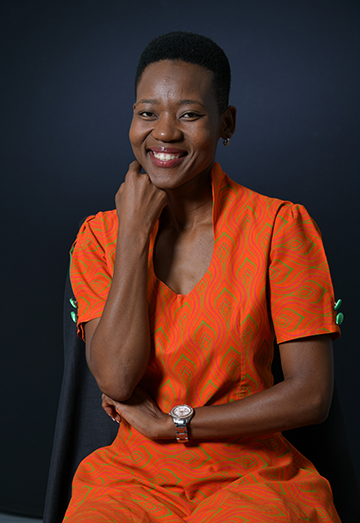College of Economic & Management Sciences
Africa needs a new approach to human settlements
A new approach to informal settlements in Africa is necessary to ensure inclusive and sustainable development. Such an approach should include a review of outdated and restrictive policies, Professor Prudence Khumalo of the Department of Public Administration and Management remarked during his inaugural lecture on 24 February.
The title of his lecture was “Exploring human settlements development in Africa: situating local economic development at the centre of sustainable human settlements”.
Click here to watch a recording of the lecture.
Human settlements in Africa pose a big problem. According to recent studies, it is the fastest urbanising continent as it affects 40%, mostly young, people on the continent. An example is the more than two million people living in tombs in Cairo. Some 30% of the world’s slum-dwellers (238 million) are in sub-Saharan Africa. These people face a triple tragedy of poverty, unemployment and homelessness.
The situation is set to worsen as it is expected that 6 out of every 10 people in the world will reside in urban areas by 2030. More than 90% of this growth will take place in Africa, Asia, Latin America and the Caribbean. In the absence of effective urban planning, the consequences will be dramatic, Khumalo warned.
Owing to conflict in different parts of the African continent, many people are displaced and have no access to adequate human settlements. Informal settlements are zones of vulnerability and conflict and therefore need urgent attention and comprehensive solutions. The way in which informal settlements are developed has a big impact on the human dignity and health of the inhabitants and the prosperity of the areas in which they are located, which has an indirect effect on peace, justice and strong institutions in these areas.
A new approach is necessary to tackle the challenges associated with informal settlements, Khumalo opined. “We should rethink what an African city should be in terms of the context and historical cornerstones. This should start with a review of land use, management and ownership and should include inclusive development,” he said.
Such a new approach offers many opportunities. It should include a review of the applicability of new building technologies that suit the context of different African countries, as well as the use of solar harvesting and storage to enable energy-efficient human settlements. These areas could also be tailored to cater for different groups of people, including people with disabilities.
Local economic development and participation are key pillars in the development of sustainable informal settlements, Prof Khumalo argued. An example of a successful case is Kibera (Soweto East) in Nairobi, Kenya, where 5 000 people are accommodated in new high-rise structures. From the start, a settlements committee representing the community participated actively with other role players in the housing project, including non-governmental organisations, the World Bank, developers and faith-based organisations. Households contributed 10% towards their housing and pay rent – even if it isn’t much. Where available, local skills and materials were used in the construction of the buildings and access roads. This created income opportunities, helped the local people to develop skills and created a sense of ownership. The local participation in the process helped overcome the siphoning of funds intended for the project by corrupt officials. An important aspect of the project was the development of infrastructure, such as roads and spaces for doing business, Khumalo said.
Khumalo’s exploration of the development of human settlements in Africa has provided him with case studies and a testing ground for ideas and possible solutions to the problems that communities in human settlements face. It has also helped him to develop study material that is relevant and responsive to the environment.
Having seen a lot of potential going untapped owing to poverty, he took an interest in the area of sustainable development. This motivated him to make a contribution at an epistemic level.
“I want to contribute to the fight against abject poverty on the continent and I want my work to provide insights that will improve the standard of living of many in the region,” he concluded.
* By Ilze Crous, Communication and Marketing Specialist, College of Economic and Management Sciences
Publish date: 2022/03/07


 Unisa co-hosts G20 community outreach in the Eastern Cape
Unisa co-hosts G20 community outreach in the Eastern Cape
 Unisans gain membership of prestigious science academies
Unisans gain membership of prestigious science academies
 Advocating for disability transformation through servant leadership
Advocating for disability transformation through servant leadership
 Unisa Press continues to illuminate the publishing space
Unisa Press continues to illuminate the publishing space